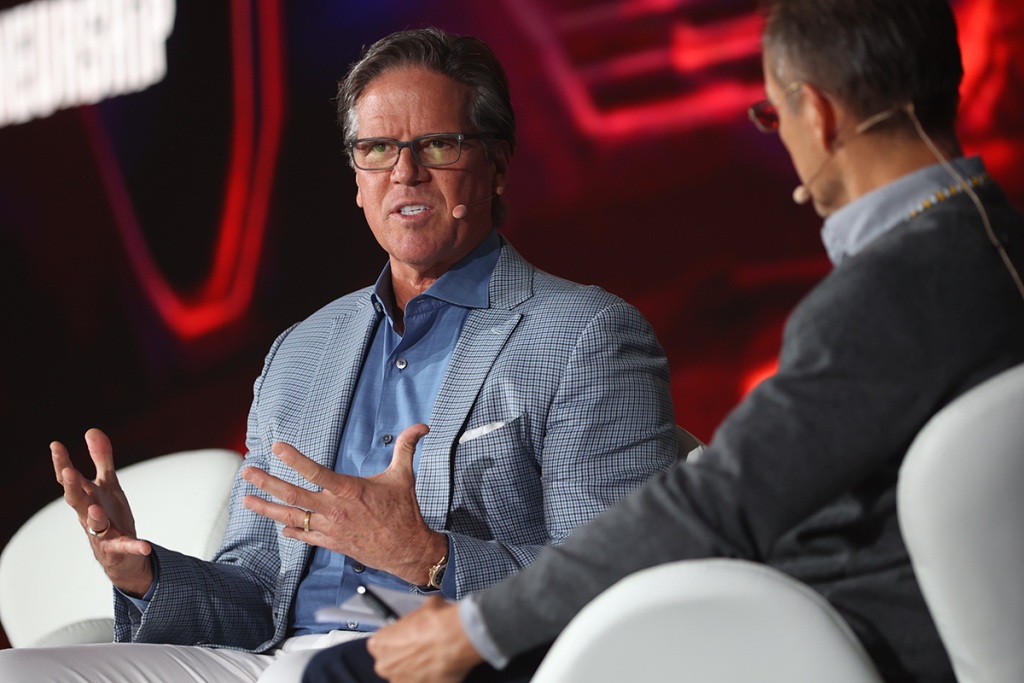From Spectators to Doers: How the travel business has changed in two decades – WiT
From Gamblers to Makers: The Travel Business Model Has Evolved After Two Decades
“Someone is always playing corporate games … we want to dance here, someone stole the stage.” Starship’s iconic line from We Built This City it can be a song for the travel industry, which has faced its business games, setbacks, and rebirth in the last two decades.
The industry has evolved into a series of distinct business archetypes: from risk-taking “players” to visionary “tyrants” and now, to problem-solving “doers.” Each wave shows the adaptation of the travel sector to new technological and economic conditions.
Few people understand this evolution better than Chris Hemmeter, co-founder and managing director of Thayer Ventures, a business firm specializing in the travel and hospitality industry. Speaking at the WiT Singapore forum last month, Hemmeter reflected on how the nature of the travel entrepreneur has changed with each generation.
“We’ve gone from gamblers to game developers to money makers,” Hemmeter said. “The entrepreneurs I see now are real makers. They’re building things. They have insight into very unique unsolved problems.”
The Gambler Era: Risk-Taking Traders in the Early Days of Travel Tech.
In the early days of online travel, entrepreneurs were what Hemmeter calls “gamblers”. These pioneers took great risks to get their ideas off the ground. Lacking the support of a sophisticated business system, these founders often had no choice but to stake their fortunes on unproven business ideas. They went “all in”, hoping to ride the first wave of digital change in travel.
Hemmeter explains: “Businessmen were gamblers. “They were good players. Venture capital was not yet developed, so these entrepreneurs would guarantee everything. All of this had to do with your net worth in each at-bat. ”
Interestingly, he was interviewed by his fellow entrepreneur-turned-entrepreneur, Fritz Demopoulos who, along with his two co-founders, started Qunar as a meta search player in China in 2005 and created one of the most successful routes in the Asian online travel industry, when it sold to Baidu a few years later.
For these early players, embarking on a journey was a high-stakes adventure, often driven more by faith and ambition than by formal strategy. Some have been spectacularly successful, like Demopoulos, but many others have languished, unable to keep up with the costs and risks of scaling up in a time when digital infrastructure was in operation.
The Stage of Supporters: From Victims to Storytellers
As business capital began to flow into the travel sector, the business archetype changed from gambling to “cheat”. At this stage, it wasn’t enough to just be brave – you had to be convincing. Sponsors were visionaries who could tell a compelling story, attract investment, and inspire teams.
Hemmeter says: “The businessmen were the supporters. “They had to tell a story, sell a vision, build teams. The character of a successful entrepreneur was someone who could promote it.”
When prompted, Hemmeter called himself a “supporter”.
When asked why he chose to part with his family’s hotel legacy, instead focusing on business and investment in the travel industry, he said. “I have a strong desire to seek to solve new problems. I am a butterfly catcher. And so, I’d like to get those threads. I like to teach what I think is coming. I like to tell big stories. ”
In the age of “promoters” and the era when ideas were valued as much as execution, the main skill of entrepreneurs was to sell a vision that investors, employees and customers could rally around. it. The promoters laid the groundwork for companies that would grow rapidly, sometimes faster than their operating infrastructure could support them. This sector has produced several household names in travel technology, but it has also left behind a series of companies that could not withstand the pressures of rapid growth.

Chris Hemmeter: “I have a strong desire to seek to solve new problems. I am a butterfly catcher. And so, I’d like to get those threads. I like to teach what I think is coming. I like to tell big stories. ”
The Age of the Maker: Today’s Entrepreneurs as Solution Builders
Today, Hemmeter sees a new business model emerging: the “maker”. These modern-day entrepreneurs don’t just focus on big ideas or high risks; they are problem solvers who prioritize building real, lasting solutions. Makers are product-driven, technology-driven innovators who create profitable businesses that address pain points within the travel industry.
“The entrepreneurs I see now are real doers,” Hemmeter says. , ‘Well, why hasn’t someone else tried it that way?’”
Unlike gamers and their advocates, developers are often deeply involved in the technology behind their products. They are passionate about creating solutions, and are focused on developing their offerings to address the real needs of customers.
However, Hemmeter warns that although manufacturers are good at product development, they can sometimes ignore the problems of the go-to-market strategy – an important factor for promotion.
The Importance of Aligning Product and Market Strategy
Hemmeter emphasizes that a strong product alone is not enough for a startup to succeed. Although today’s manufacturers have a high level of construction skills, they must develop a clear strategy to reach their market.
“Manufacturers are product-driven, and sometimes they ignore the challenges of going to market,” he says. “Even if you’re a seed company, you need to have a clear vision of what you think your playbook will be there.”
This understanding reflects a change in investor expectations. For venture capitalists, a promising product is only part of the equation; they also want to see startups with a comprehensive plan to engage their audience and drive growth.
Grit and Resilience: Essential Traits for Today’s Entrepreneurs
Building a successful startup is never easy, and Hemmeter believes that grit and perseverance are the defining characteristics of exceptional entrepreneurs. While previous generations may have been tough out of necessity, Hemmeter worries that today’s young founders, especially those from special backgrounds, may lack the same resilience. necessary to endure the inevitable difficulties.
“It’s always tough when you’re building a business,” says Hemmeter. “Grit is important. There is a way that this generation, especially the lucky young entrepreneurs, don’t necessarily have the same staying power. ”
For investors, it can be difficult to assess the integrity of a trader. Hemmeter shares that while recent reviews and past experiences can provide insight, true grit shows itself under pressure.
He admits: “It’s hard to identify grit. “You can do background research, talk to your past colleagues, but sometimes you still don’t know if someone who has the strength to stay until things get tough.”
The Evolution of Venture Capital in Travel
The rise of capital itself has changed the business environment. Unlike in the days of gamblers, today founders don’t have to risk their money in the same way. However, Hemmeter admits that starting a venture capital firm comes with its own hurdles, especially in the travel industry, which can be challenging.
“Raising the first fund for a venture capital firm is very difficult,” he says. , sometimes with little financial reward.”
While venture capital has been an important force for innovation, it is a competitive business that faces its own challenges, including the struggle to achieve exit success and return capital to investors.
Post-Pandemic Innovation in Travel
The COVID-19 pandemic has been a major disruption to the travel industry, exposing its vulnerabilities but also hastening the adoption of technology. Hemmeter sees a renewed commitment within the industry to be proactive, driven by the lessons of this pandemic.
He says: “This disease has affected the gaits.” “Now, there’s a real commitment across the industry to not let that happen again. This has opened the door to experimentation that allows great ideas to take hold.”
This rapid innovation has created new opportunities for startups to develop solutions that improve flexibility, creating a strong foundation for the future of travel.
The Next Frontier for Travel Marketers
Hemmeter believes that the travel industry’s size and continued change provide many opportunities for today’s “innovators” to build multi-billion dollar businesses. The journey from gamers to promoters to creators has brought the industry to a place where thoughtful, sustainable innovation can thrive.
“The travel space is so big that building a billion dollar business is not that big of a deal,” Hemmeter concludes.
For today’s entrepreneurs, the way forward will require not only a great product, but also dedication, a strong market strategy, and a deep commitment to solving important problems. As the travel industry continues to change, the creators who combine vision and grit will define its future.
#Spectators #Doers #travel #business #changed #decades #WiT
